[This is a sponsored article written in collaboration with SEEd.Lab.]
When fish farmers in Malaysia were struggling with wasted feed and low profits, Rafiq Razali saw an opportunity. Today, his startup AquFish is helping them cut costs by 20%, and just won an international innovation award in the process.
He’s not alone.
Another founder, Maizatul from Sagemaker Asia, turned a small idea into a business that’s already raised the income of a women-led community to RM30,000 collectively in less than a year. The business creates and sells educational products, many of which are for special-needs children.
What do these two startups have in common?
They are both participants of SEEd.Lab (Social Enterprise Education Lab), an end-to-end incubation programme made for impact-driven entrepreneurs powered by PETRONAS and Tata Consultancy Services (TCS).
How AquFish is reshaping fish farming with AI
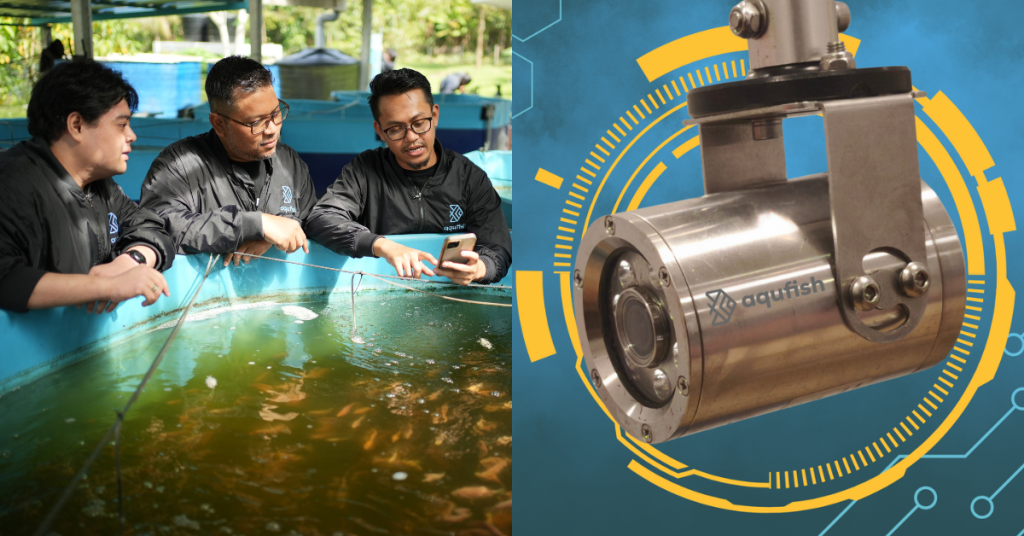
Ever wondered what’s the optimal portion of food for your family, from yourself to your parents to even your kids? There’s no one-size-fit-all portion which can be a struggle if you’re aiming for a healthy diet.
It’s the same concern that fish farmers have and what AquFish’s patent-pending solution, AquMonitor, solves. By utilising AI and cameras, AquMonitor accurately measures the biomass of each fish in real time.
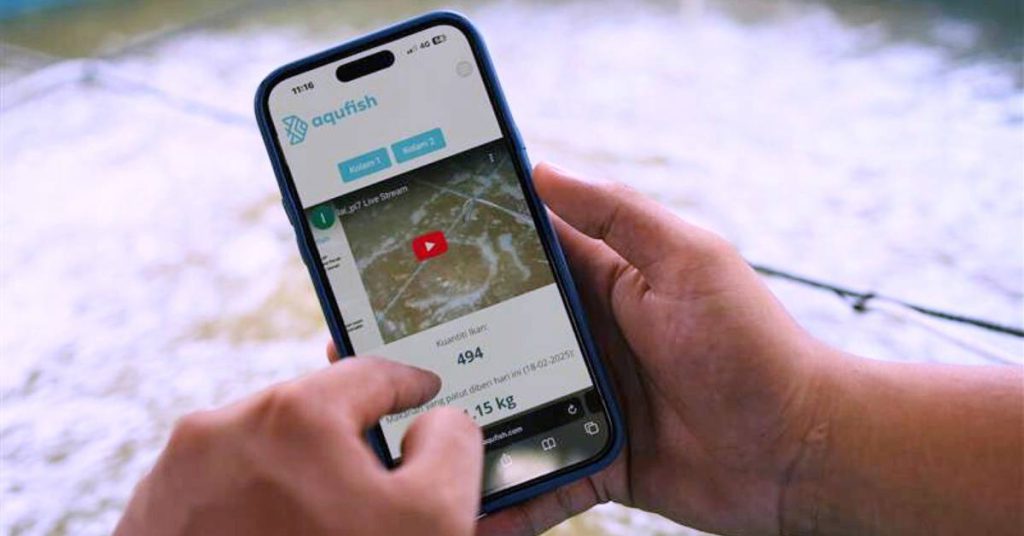
The system then analyses this data and provides farmers with precise advice on the optimal amount of feed based on the fish’s biomass, thereby optimising feed usage and significantly reducing wastage.
Beyond that, AquMonitor also checks the health status of the fish, estimates harvest dates, and predicts yield. By making farming more efficient and data-driven, they’ve successfully helped farmers increase annual profits by 46% and reduce feed costs by 20%.
“The concept for AquFish was something I had been exploring, but the SEEd.Lab programme was where it truly came to life,” Rafiq Razali, co-founder and CEO of Aqufish shared.
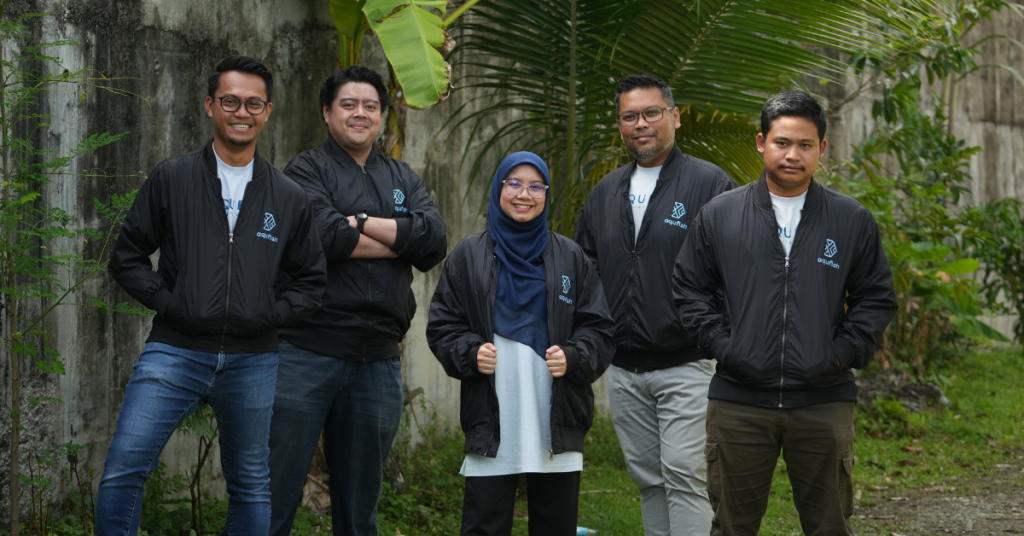
The programme gave him the tools to turn what was once just an idea into a viable business model with a structured approach, most notably the PETRONAS Working Backwards (PWB) methodology.
Together with guidance from programme mentors, the PWB method taught AquFish’s team to identify and validate real problems that are both urgent and intense for their target customers. “This approach was instrumental in building a foundation for AquFish that is rooted in solving a genuine market need,” Rafiq explained.
Empowering marginalised, women-led households
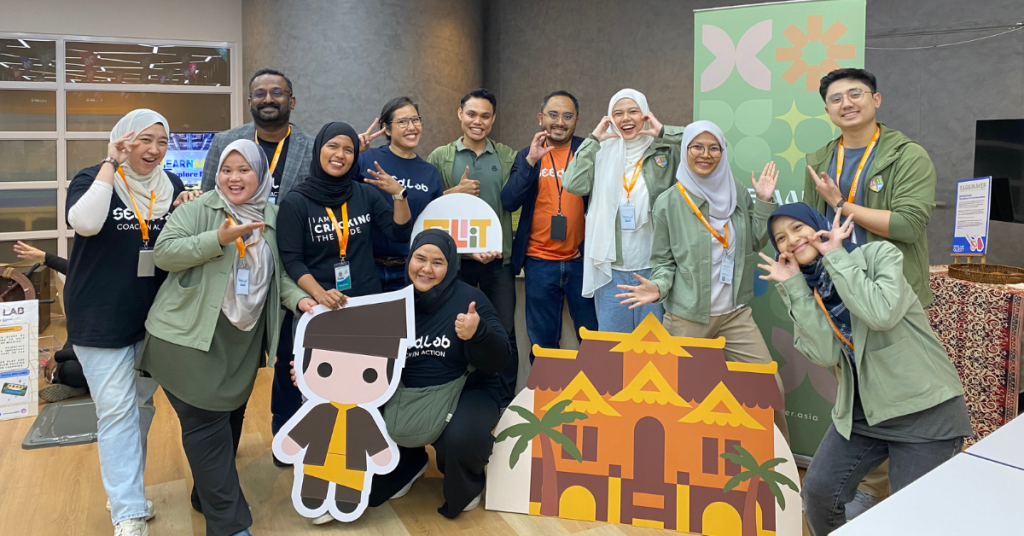
Maizatul Kamal, founder and CEO of Sagemaker Asia echoed a similar sentiment. Before joining SEEd.Lab’s third cohort, she confessed that they didn’t have a solid business concept.
With the constant support from the coaches, networking opportunities, and the economic knowledge gained, Sagemaker Asia had a better and more confident footing. “Those things gave us the discipline to grow sustainably and make better strategic decisions. It wasn’t about giving us all the answers, it was about equipping us with the right tools to find them,” Maizatul stated.
A social enterprise, Sagemaker Asia’s core mission is to support and empower marginalised, women-led households through skills training, fair wages, and market access. Or as they call it, the community-centric microfactory system.
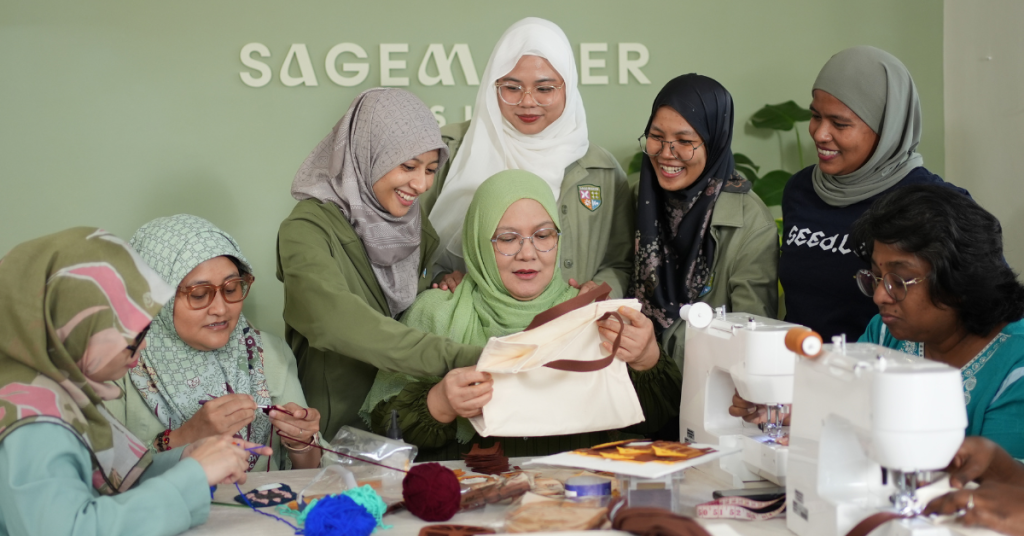
Imagine a network of mini factories spread across homes and local hubs, where mothers can work close to their families while still producing high-quality handcrafted products. It’s where ideas are born, skills are sharpened, and most importantly, where women can see the value of their work turn into real income.
Using the PWB method, Sagemaker Asia’s team went on the ground to meet women who run small arts and crafts businesses in urban areas.
“We saw how many were juggling multiple odd jobs just to stay afloat,” Maizatul explained. “That’s when it clicked, there’s a wealth of hidden talent here, but no structured way to turn it into sustainable income.”
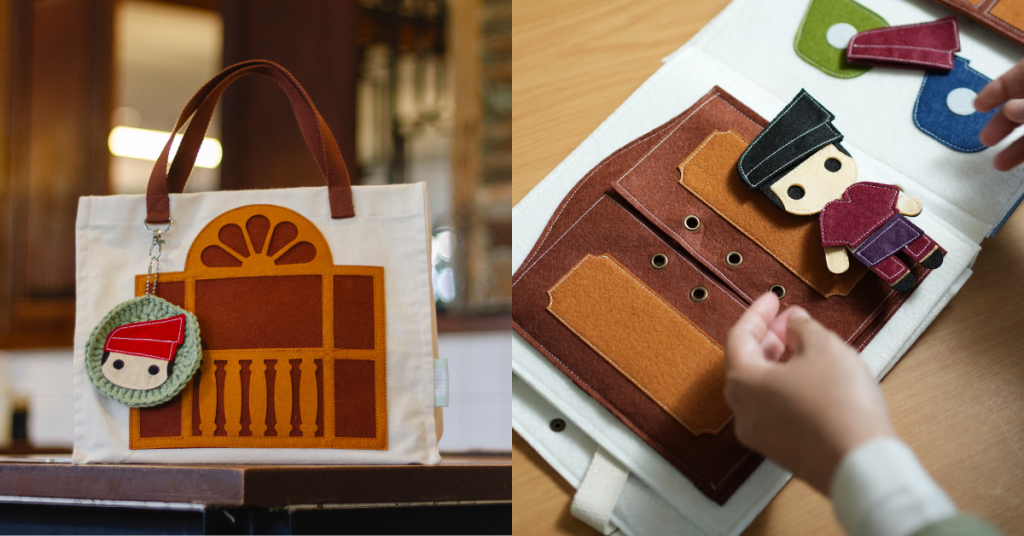
The answer came from looking at market needs and identifying educational toys as a product that merges social impact and commercial demand. That’s how Sagemaker Asia’s first prototype, the interactive fabric sensory book was born.
Thus far, the brand has onboarded 31 women and sold more than 100 educational products.
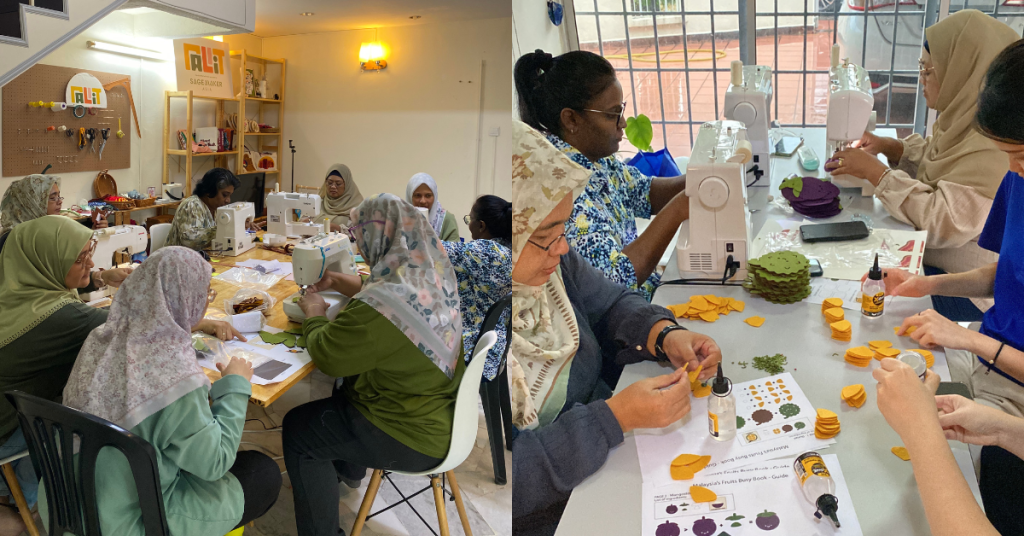
A launchpad for impact-driven startups
The saying goes that if you want to go fast, go alone. But if you want to go far, go together. “SEEd.Lab has been our ‘together’,” Maizatul stated.
AquFish’s Rafiq also agreed that the experience at the programme was a gamechanger for them, providing a powerful platform for turning a great idea into a tangible business.
In a nutshell, the programme’s focus on practical, hands-on learning equips participants with the skills and mindset needed to navigate the startup world as a social enterprise.
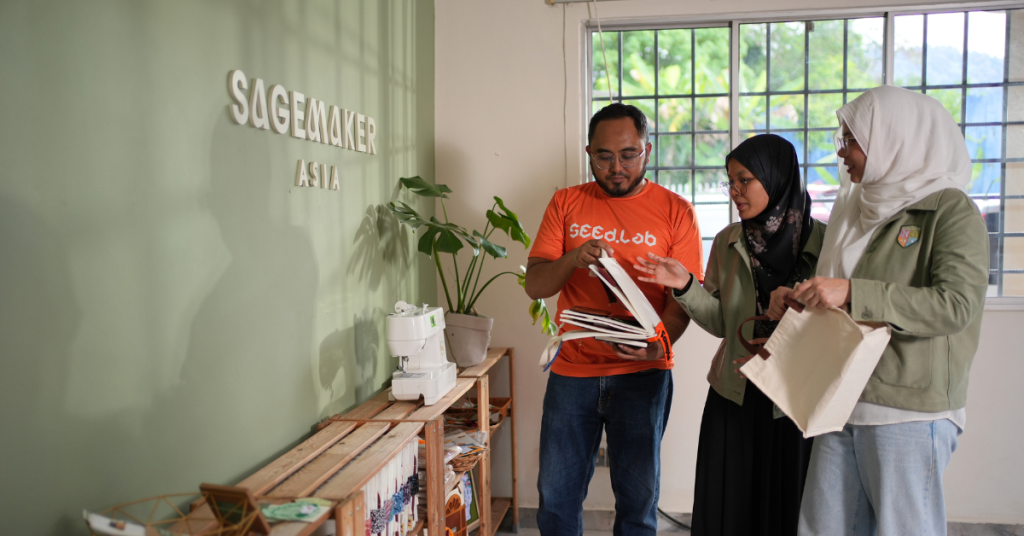
Continuing its effort to uplift local social enterprises, SEEd.Lab is now welcoming participants to join Cohort 4.
The 12-months programme will provide startups with mentorship, resources, a monthly allowance, and the opportunity to secure an RM50,000 grant to kickstart your very own social enterprise.
From ideation all the way to incubation and commercialisation, SEEd.Lab is a sandbox that supports startups in solving social pain points. This cohort will focus on the following challenge areas:
- Education and skills
- Food and agriculture
- Health and hygiene
- Personal and financial security
You’ll also gain mentorship from PETRONAS and TCS, as well as experts in the industry, academia, and government through SEEd.Lab’s ecosystem.
Participants will receive a monthly allowance starting at RM2,500 and increased up to RM3,000 depending on which phase of the programme you’re in.
If you don’t have a team yet, don’t fret! You can meet your co-founders within the programme itself. In fact, Rafiq met and formed his co-founders during the third cohort, where they quickly bonded over a shared passion for sustainable technology.
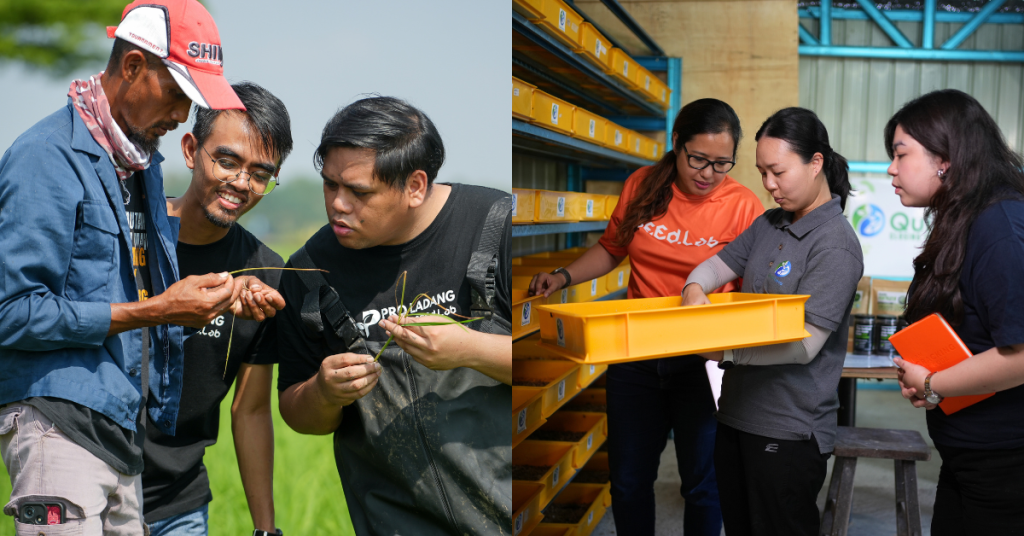
An opportunity not to be missed
Thus far, SEEd.Lab has supported 14 social enterprises and helped uplift communities in various sectors, including mental health, street vendors, gig professionals, people with disabilities, and the elderly amongst others.
Some of them have received recognition for their work, such as AquFish who was crowned the national winner for WSA Malaysia 2025 under the category of Environment & Green Energy, an award that promotes digital innovations aligned with the UN SDGs.
Other SEEd.Lab graduates continue to make meaningful change in their fields through partnerships, like Sagemaker Asia’s collaboration with Yinson under the Yinson4Youth (Y4Y) initiative. Through this, they’ve empowered women artisans from underserved communities to co-create handcrafted educational products, as well as launched new community hubs and provided mentorship and grants that have catalysed both economic resilience and cultural pride.
Grants aside, one of the biggest advantages of joining SEEd.Lab is being able to tap into the skills and knowledge of its coaches, principals, and business sharks before directly applying that to your startup.
“That’s rare, hardly you will have it when you’re bootstrapping, and it’s been instrumental in shaping both our impact model and our commercial growth,” Maizatul explained.
If you’re an aspiring entrepreneur that wants a supporting space to challenge and grow your startup, this is not an opportunity to miss.
Recruitment is happening now until September 17, you can submit your applications at their website here.
- Learn more about SEEd.Lab Cohort 4 here.
- Read articles we’ve written about startups in Malaysia here.
Featured Image Credit: SEEd.Lab
